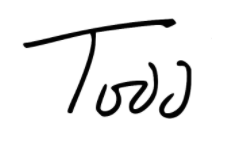Giving Thanks in Bad Times
 We, as Americans, tend to give thanks the most when things are at their worst.
We, as Americans, tend to give thanks the most when things are at their worst.
We never would have had a national Thanksgiving holiday if not for war. In fact, our first Thanksgiving holiday came in what was perhaps the worst year of our history, 1863.
Thanksgiving was a purely New England holiday before then. Native New Englanders from all states returned home in late November for family reunions and feasts, which often included turkey. One such New Englander, a powerful media baron named Sarah Hale, implored all Americans to celebrate Thanksgiving. Few paid her any attention.
Then came 1863, our bloodiest year. It started with Chancellorsville. Then, Vicksburg and Gettysburg, Chickamauga and Chattanooga. The New York draft riots torched the city and shook the Union to its core. Abraham Lincoln, who had brushed off Hale’s earlier appeals for a Thanksgiving holiday, suddenly embraced the idea. On October 3, he declared the last Thursday in 1863 to be set aside for a day of thanks.
The first sentence of his proclamation reads like an exercise in denial:
The year that is drawing towards its close, has been filled with the blessings of fruitful fields and healthful skies. To these bounties, which are so constantly enjoyed that we are prone to forget the source from which they come, others have been added, which are of so extraordinary a nature, that they cannot fail to penetrate and soften even the heart which is habitually insensible to the ever watchful providence of Almighty God.
Only in the next sentence does he mention the “civil war.” And when he does, it becomes clear that the war is the reason for the proclamation. God is angry at us, Lincoln says, and he’s punishing us with this terrible war. But he’s also showing mercy. We must thank him for the blessings first, and then ask him for relief from the war:
And I recommend to [the American people] that while offering up the ascriptions justly due to Him for such singular deliverances and blessings, they do also, with humble penitence for our national perverseness and disobedience, commend to his tender care all those who have become widows, orphans, mourners or sufferers in the lamentable civil strife in which we are unavoidably engaged, and fervently implore the interposition of the Almighty Hand to heal the wounds of the nation and to restore it as soon as may be consistent with the Divine purposes to the full enjoyment of peace, harmony, tranquility and Union.
This idea of the war being a scourge for some unnamed sin–or, as Lincoln put it here, “national perverseness and disobedience”–was a new one for Lincoln. One week before this first official Thanksgiving, Lincoln would name the sin–slavery–and change the meaning of the war in his famous speech, the Gettysburg Address.




